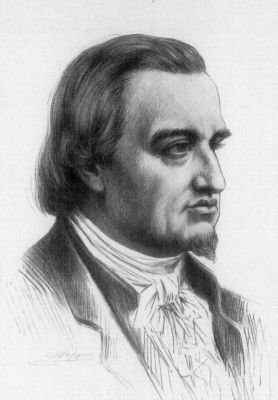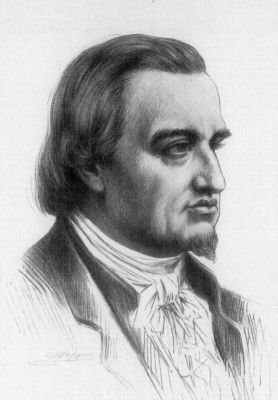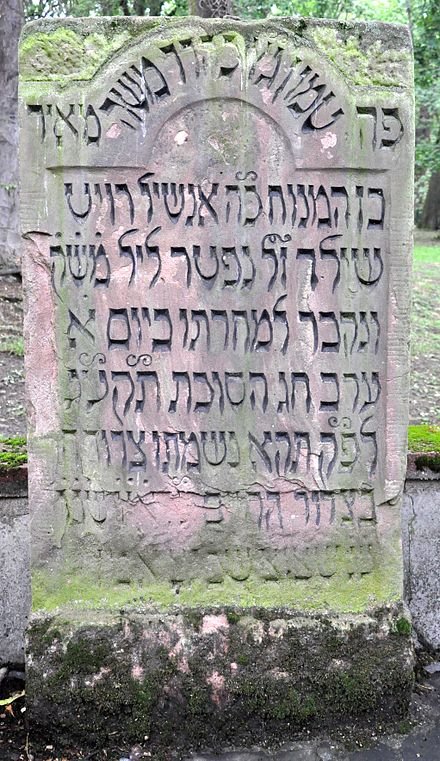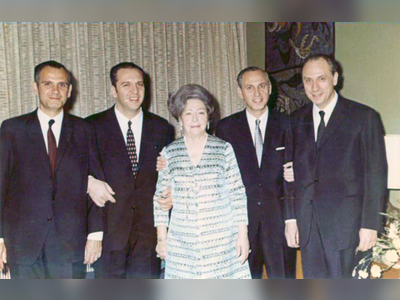מורשת גדולי האומה
בזכותם קיים
beta
Mayer Amschel Rothschild: The Founder of a Banking Dynasty
Mayer Amschel Rothschild (February 23, 1744, Frankfurt – September 19, 1812) was the patriarch of the famous Jewish banking family, the Rothschilds, which would go on to become one of Europe's leading financial and business entities.
The Name Rothschild and Its Symbolism
The name "Rothschild" became synonymous with immense wealth, thanks to the family's vast fortunes, which reached their zenith in the 19th century. The family's assets became a symbol of opulence, signifying their remarkable success in the world of finance and business.
Biography
Rothschild was born in the Jewish quarter of Frankfurt, into a family of eleven siblings. His father, Moses Amschel Rothschild (Anshel), was a descendant of the Hahn family, which had been residing in the city since 1530. Mayer's father passed away when he was just 11 years old, and his mother, Schönche Lechnich, passed away when he was 12. The family's residence, built in 1567 by Isaac Elchanan Bacharach, bore the emblem of the "Red Shield." It was this emblem that led the family to adopt the name Rothschild, meaning "Red Shield," and it became both the family's symbol and the emblem of the business house established in 1634, where they traded small goods and currencies.
On August 29, 1770, Rothschild married Gutele Schnapper (1753–1849).
Mayer Amschel Rothschild studied at a yeshiva in Frankfurt. When his father passed away, he was sent to Hanover to learn the banking trade at the Oppenheimer Bank. In 1760, he returned to his hometown and began working as a moneychanger. He established his own money-changing business over time. Thanks to the profits he made, Rothschild caught the attention of William I, the Prince of Hesse, who chose him to handle loans to European monarchs in exchange for recruiting Hessian soldiers.
In 1785, Rothschild's banking business expanded significantly due to the French Revolution, as he was appointed to receive payments from Britain for renting German soldiers. Over time, the bank began to offer international loans.
Rothschild's fortune grew when, in 1806, King William I fled Denmark to escape the French army, entrusting Rothschild with money and valuables worth 600,000 livres. The treasure was hidden in wine barrels in Rothschild's cellar, and the French could not find it. After the war, the treasure was returned to its rightful owner.
The Rothschild family's wealth was estimated at around 400 million livres, equivalent to nearly 27 billion livres in 2019 values. His sons established businesses in various European capitals. Before his death, Rothschild instructed his sons to participate equally in their trading activities and to share their profits equally.
Rothschild is buried in the ancient Jewish cemetery in Frankfurt. The settlement of Meir Shefeyah in Israel was named after him.
The name "Rothschild" became synonymous with immense wealth, thanks to the family's vast fortunes, which reached their zenith in the 19th century. The family's assets became a symbol of opulence, signifying their remarkable success in the world of finance and business.
Biography
Rothschild was born in the Jewish quarter of Frankfurt, into a family of eleven siblings. His father, Moses Amschel Rothschild (Anshel), was a descendant of the Hahn family, which had been residing in the city since 1530. Mayer's father passed away when he was just 11 years old, and his mother, Schönche Lechnich, passed away when he was 12. The family's residence, built in 1567 by Isaac Elchanan Bacharach, bore the emblem of the "Red Shield." It was this emblem that led the family to adopt the name Rothschild, meaning "Red Shield," and it became both the family's symbol and the emblem of the business house established in 1634, where they traded small goods and currencies.
On August 29, 1770, Rothschild married Gutele Schnapper (1753–1849).
Mayer Amschel Rothschild studied at a yeshiva in Frankfurt. When his father passed away, he was sent to Hanover to learn the banking trade at the Oppenheimer Bank. In 1760, he returned to his hometown and began working as a moneychanger. He established his own money-changing business over time. Thanks to the profits he made, Rothschild caught the attention of William I, the Prince of Hesse, who chose him to handle loans to European monarchs in exchange for recruiting Hessian soldiers.
In 1785, Rothschild's banking business expanded significantly due to the French Revolution, as he was appointed to receive payments from Britain for renting German soldiers. Over time, the bank began to offer international loans.
Rothschild's fortune grew when, in 1806, King William I fled Denmark to escape the French army, entrusting Rothschild with money and valuables worth 600,000 livres. The treasure was hidden in wine barrels in Rothschild's cellar, and the French could not find it. After the war, the treasure was returned to its rightful owner.
The Rothschild family's wealth was estimated at around 400 million livres, equivalent to nearly 27 billion livres in 2019 values. His sons established businesses in various European capitals. Before his death, Rothschild instructed his sons to participate equally in their trading activities and to share their profits equally.
Rothschild is buried in the ancient Jewish cemetery in Frankfurt. The settlement of Meir Shefeyah in Israel was named after him.
- מאיר אנשל רוטשילד – ויקיפדיהhe.wikipedia.org



